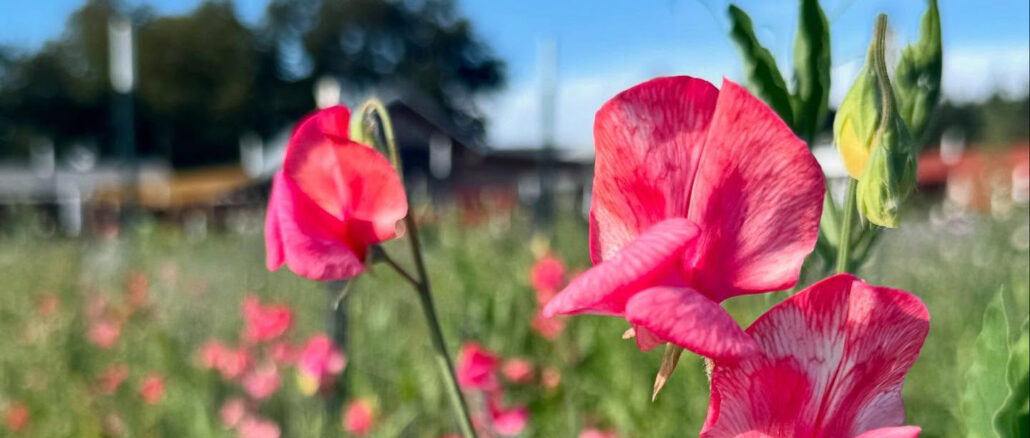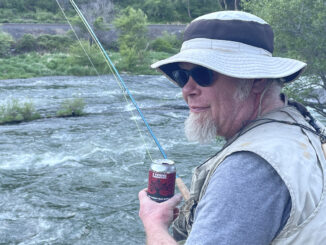
For orchard-based cideries, biodiversity isn’t just a feel-good environmental goal. Instead, it’s increasingly viewed as an essential business strategy. By working with local farmers, beekeepers, and conservationists, many cider makers are finding that these collaborations can yield measurable gains in orchard health, product quality, and even profitability.
Across many operations shared with Cider Business and Brewer Mag, it became clear that biodiversity isn’t just a marketing tagline for these orchard-based companies; it’s an operational philosophy that links ecological health with long-term business stability.
Whether through managed hedgerows, pollinator partnerships, or habitat restoration, these cideries have discovered that sustainability and profitability can grow from the same roots.
Finnriver co-owner and cidermaker Andrew Byers said biodiversity has become central to how the business operates across its 50-acre farm. Through a partnership with Washington’s Jefferson County Land Trust, Finnriver placed its property under a conservation easement to ensure permanent agricultural use.
That legal framework, Byers said, gives them “the security necessary for long-term biodiversity investments and sustainable farming practices.”
Finnriver’s approach extends beyond paperwork and into the ecosystem itself. Working with the North Olympic Salmon Coalition, the cidery has restored riparian buffers along nearby Chimacum Creek.
“It’s not just about salmon habitat,” Byers said. “Those plantings create corridors for native pollinators—particularly non-honeybee species—that are critical to orchard health.”
One of Finnriver’s most innovative efforts is its collaboration with Friends of the Trees, which manages hedgerows planted between old and new orchard blocks. These hedgerows provide wind protection, disease barriers, and frost mitigation while also serving as a living habitat for pollinators year-round.
Byers said the partnership has proven both ecologically and economically valuable.
“Friends of the Trees harvests medicinal herbs from the hedgerows, creating an additional revenue stream,” he said. “It shows how biodiversity can support multiple functions, not just environmental ones.”
He added that even small-scale, traditional practices — such as cultivating with draft horses — fit within that philosophy.
“Our old boys Jim and John might not be ‘carbon neutral,’” Byers said, “but they’re part of a low-impact, integrated farming system that complements our broader biodiversity goals.”
In Oregon’s Rogue Valley, Blossom Barn Cidery co-founder Jeremy Hall takes a similarly interconnected approach to his perry-making operation. Blossom Barn produces exclusively perry and relies heavily on local ecosystems to sustain its orchards.
“We partner with a local beekeeper who brings in hives to pollinate our pear trees,” Hall said. “Then we use the honey in our holiday spiced perry and sell it by the jar in our tasting room.”
The partnership, he noted, adds labor but cuts input costs.
“It’s more work, but we don’t rely on purchased fertilizers or chemicals. That saves us money and keeps our orchard story authentic.”
Hall said this authenticity resonates strongly with consumers.
“We’re proud to tell people our perries come from our own pears, not juice trucked in from central Washington,” he said. “That’s a big differentiator, and we share it in person, online, and through media coverage.
“It connects people directly to our place.”
WATCH MORE: Brewer Mag/Cider Business Podcast with Blake’s
Seminary Hill Cidery has found a simple yet effective biodiversity boost through a partnership with a local Catskills region beekeeper who maintains hives among the orchard rows. “Honeybees are just one of many pollinators, but their presence supports our ecosystem and provides a product we can sell in our tasting room,” said co-owner Doug Doetsch. The added income from honey sales helps reinforce the value of maintaining pollinator diversity as part of orchard management.
Collaboration has taken a slightly different form for 7Bev Corp. General Manager Toney Chay said the cidery partnered with a local mason bee enthusiast and installed bee houses throughout the property. Mason bees, unlike honeybees, don’t produce honey but are highly efficient pollinators.
“What’s remarkable is that even before we built the bee houses, they’d already found us,” Chay said. “They were nesting in small holes where we stored wood. It showed how ready the environment was for them.”
By focusing on mason bees, Chay said, the cidery has improved natural pollination without the management challenges that come with traditional hives.
“It’s been a low-maintenance, high-impact collaboration,” he said.




Be the first to comment